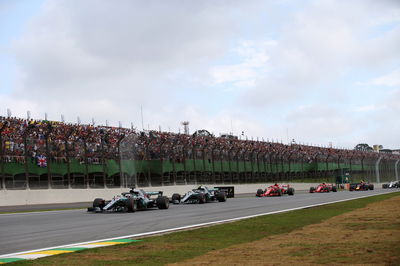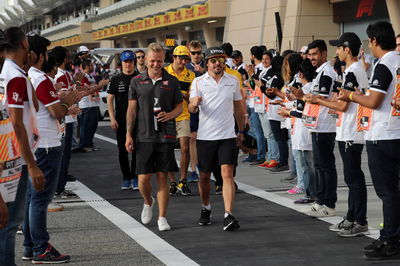F1 on the ‘right path’ to attracting new manufacturers
Chase Carey is confident Formula 1 is on the “right path” to attracting new manufacturers for 2021, despite moving away from a major regulation overhaul.
A new set of engine regulations had been proposed for 2021 in a bid to reduce costs, create closer competition between teams and attract new manufacturers.

Chase Carey is confident Formula 1 is on the “right path” to attracting new manufacturers for 2021, despite moving away from a major regulation overhaul.
A new set of engine regulations had been proposed for 2021 in a bid to reduce costs, create closer competition between teams and attract new manufacturers.
But after existing manufacturers - including Mercedes - pointed out a complete engine redesign would incur significant costs, and following delays in outlining a definitive set of rules, F1 has backed away from its initial plans.
Carey said he has been encouraged by the prospect of new manufacturers joining F1 in 2021 following recent talks with potential new entrants.
"We wanted to make sure that we continued to have the hybrid engine that was road relevant today," Carey explained.
"At the top of the pyramid in terms of technology that in many ways is at the forefront of what's going on in the world. Part of that is what attracts the right new engine manufacturers into it as well.
"With the path we're on, and we have had some discussion with potential new entrants, we're encouraged.
"There's broad agreement that the path we've landed on for going forward is the right path for everybody, existing and new."
Carey explained that stability in the regulations was a key factor for the existing teams and manufacturers in order to avoid “unintended consequences”.
"A year ago we were probably headed towards a more significantly rebuilt engine," he said.
"As we got into discussions with all the teams we came to an agreement that the right path was more stabilising the existing engine, and marrying it to a series of sporting and technical regulations that improved competition, and addressed some of the economic issued around that.
"Whenever you have a new engine, everybody starts over, and there are always unintended consequences."
Restricting testing time and dyno usage was an example highlighted by Carey as a way to avoid spiralling costs from a potential development race.
"A factor for example which came out of this is that dyno time, which is testing time, is one of the more expensive consequences because it lets you test open-ended - throw stuff against the wall and test it," he added.
"So the degree you want to address how much time and money can be spent addressing an endless list of theoretical enhancements is probably as important as any tool to make the engines both from a competition and a business perspective viable and attractive for existing and new players."












